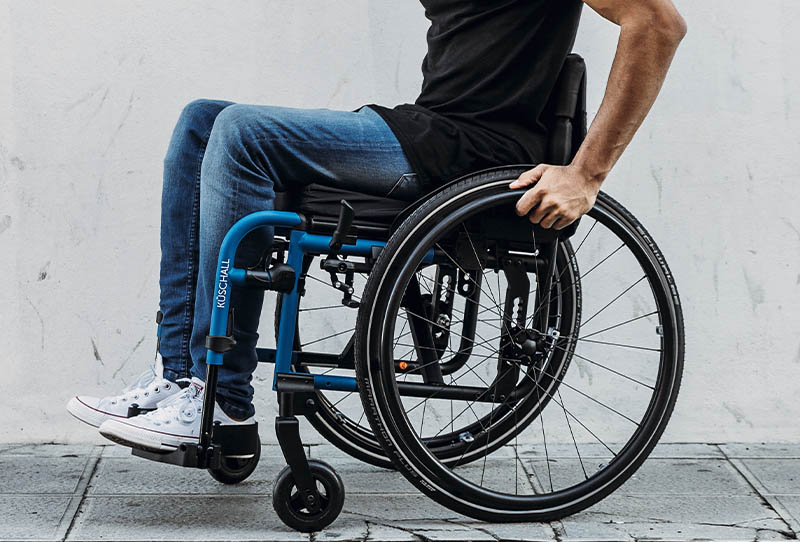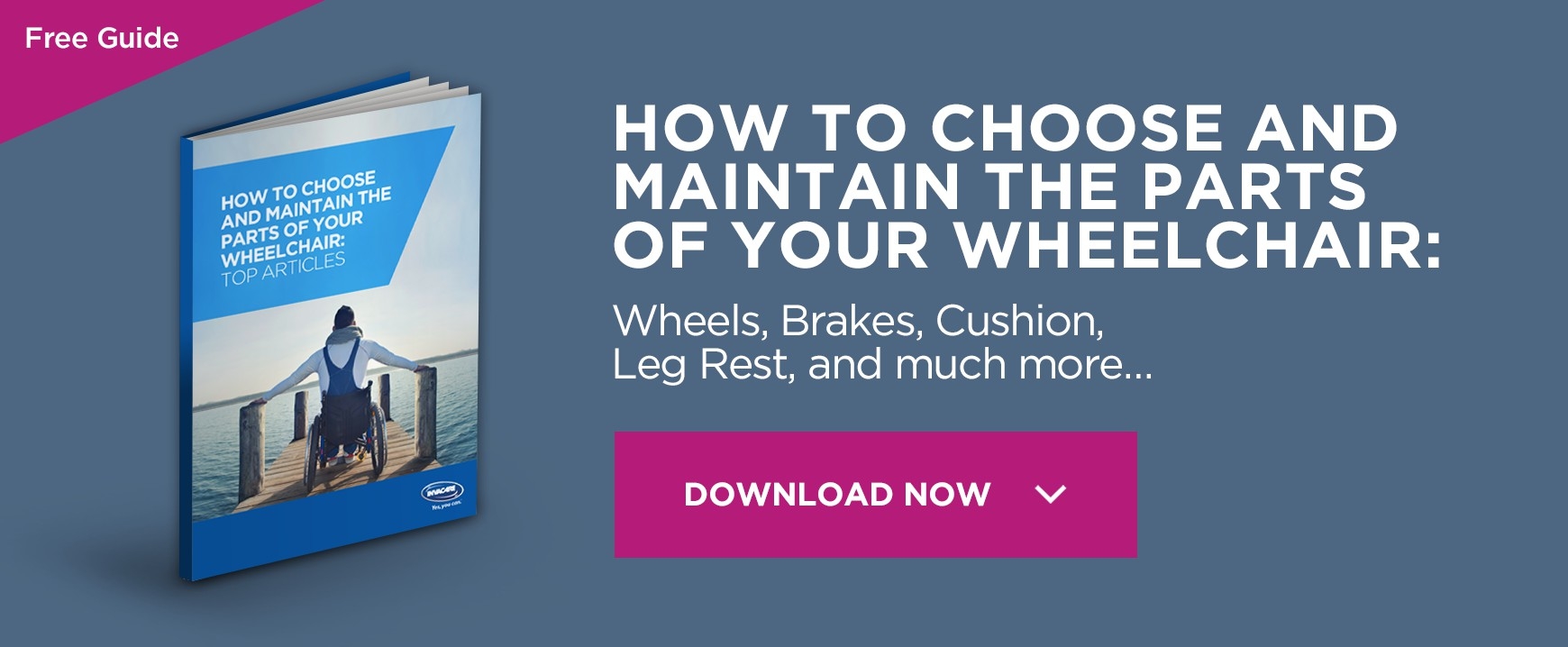Why are wheelchair footrests essential for posture?

The two most common forms of foot support for wheelchairs are footrests and leg rests. Wheelchair footrests, in particular, come in a range of designs – from fixed bars upon which a user may place their feet when seated, to footrests that clip in place and can swing away from the users legs to create space if they are ambulatory and wish to stand. Leg rests on the other hand, offer much more bespoke functionality and generally feature a padded cushion situated behind the wheelchair user’s calf muscle. The purpose of the wheelchair leg rest is to increase support, alleviate pressure, and often, enable the user to raise their leg(s) when seated in their wheelchair.
Generally speaking, footrests are far more commonly found on wheelchairs than leg rests. It would be highly unusual to find a wheelchair that had neither a footrest nor a leg rest. Wheelchair footrests and wheelchair leg rests play a pivotal role for the wheelchair user – not least in ensuring optimal blood circulation to the individuals legs, and improving overall posture.
Why is a wheelchair footrest so crucial?
Further reasons why a wheelchair footrest is so important center around the comfort of the wheelchair user when seated in their chair. Needless to say, improper use, supply, or fitting of a wheelchair footrest can lead to an increase in pressure on the buttocks, lower back, and thighs of the wheelchair user. There may even be situations where a wheelchair user with an improperly fitted footrest could have problems with their digestion – mainly when angles between the wheelchair user’s torso and upper legs become too acute.
What actually is posture?
Posture is the way that you hold your body while standing, sitting, lying or performing tasks and is often associated with bending, lifting, pulling and reaching.
Achieving good posture requires a person to be aware of how best to avoid holding themselves in a manner in which puts strain on their back and associated muscles, ligaments, and tendons.
Good posture should compliment the shape and natural ‘S’ shape curves of your spine. When viewed from the side, the cervical and lumbar spine have a lordotic (inward) curve and the thoracic spine has a gentle kyphotic (outward) curve.
Do wheelchair footrests help to promote better posture?
It’s important to note that appropriate pelvic and lower limb positioning play an integral role in supporting the average spine’s three natural curvations. Any deviation from the necessary pelvic and lower limb position causes a person’s spine to over-compensate and therefore results in a loss of natural shape.
Good posture when sitting is therefore also dictated by the following:
- Weight distributed equally across both hips
- Knee flexed to create 90 degree angle between the Femur & Tibia
- Feet flat on a solid surface
Wheelchair footrests can be adjusted to compensate for differences in a person’s leg length and for any other potential variables, in order to ensure that when a person’s feet are placed on the footrest, their weight is distributed equally.
Furthermore, the wheelchair footrest is height adjustable so that appropriate angles can be maintained through the users ankle, knee, hip and pelvis. This also supports the user’s ability to place their feet flat on the footrest and in doing so, their ability to push through their feet to both adjust their seated position and naturally support their pelvic positioning.
Interestingly, it is also worth noting that for a female wheelchair user, their feet being flat on a solid surface through natural postural position, supports bladder emptying whilst urinating which is important to consider if the wheelchair user is also using a commode-style device to go to the toilet.
Can you use a wheelchair without a footrest?
Posture support has a significantly positive impact on a wheelchair user’s overall health and well-being; supporting tissue viability and reducing pain and discomfort. The integral role of an appropriately fitted footrest can therefore not be diminished.
With all of the benefits in mind, it’s easy to see why using a wheelchair without a wheelchair footrest would be both highly inadvisable and greatly detrimental to the wheelchair user.







